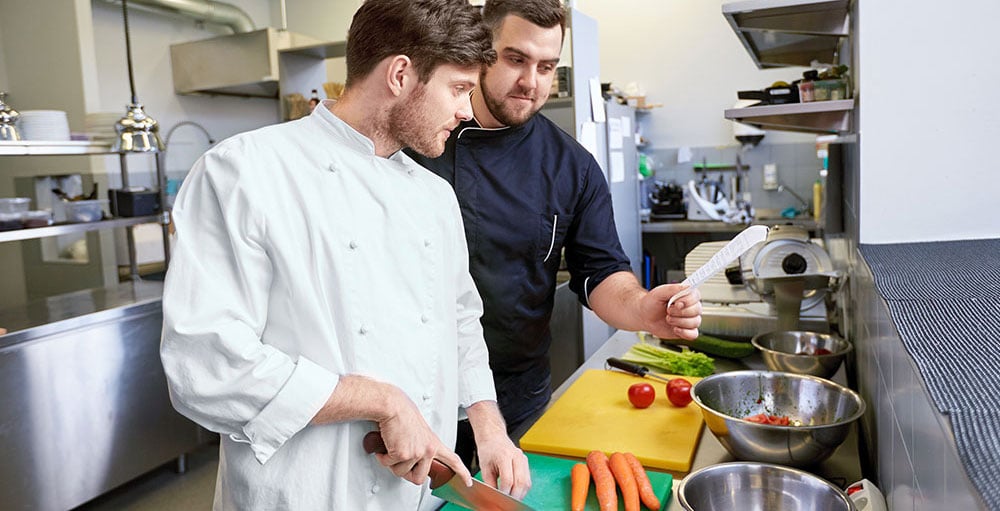Advice for Easily Earning Your servsafe food handler certificate
Advice for Easily Earning Your servsafe food handler certificate
Blog Article
Increase Your Task Opportunities: Why a Food Handler Certificate Is a Must-Have in the Culinary Market
In today's competitive cooking landscape, the value of a food trainer certificate can not be overemphasized. As dining establishments and food solution establishments progressively focus on certified personnel, specialists outfitted with this certification stand to acquire a significant benefit.
Significance of Food Security
In the cooking sector, the relevance of food safety can not be overemphasized. Guaranteeing the safety of food is vital for safeguarding public wellness and maintaining customer trust fund. Polluted food can cause significant health problems, consisting of foodborne health problems, which can influence individuals and bring about significant obligation for food facilities. For that reason, executing rigorous food safety and security techniques is vital for any culinary operation.
Food security encompasses a variety of procedures, including proper food handling, storage space, food preparation, and serving techniques. Following these techniques not only lessens the danger of contamination however also aids in abiding with local wellness policies. Appropriate training in food safety enables culinary specialists to identify possible dangers and carry out safety nets successfully.
Moreover, a strong commitment to food security can enhance the online reputation of a cooking facility, promoting consumer commitment and business growth. Customers are significantly familiar with food safety and security issues, making it important for food handlers to show their adherence to best practices. Inevitably, prioritizing food security is not simply a regulatory demand; it is a basic element of supplying quality food service and shielding the wellness of consumers.

Certification Requirements
Food safety and security methods are only as efficient as the people applying them, making certification a vital step for food handlers in the culinary sector. To get a Food Trainer Certification, candidates have to typically finish a training program that covers important topics such as foodborne diseases, hygiene, personal hygiene, and risk-free food dealing with strategies.
Many accreditation programs are made to accommodate numerous learning styles, using alternatives for online, in-person, or crossbreed layouts. Participants have to pass an examination to demonstrate their understanding of the product, with a minimal passing score frequently evaluated 70%.
The duration of training can differ, with some programs needing just a few hours, while others may expand over several days. After effectively completing the program and examination, candidates receive their certification, which is usually valid for 3 to five years, depending upon local regulations.
Renewal frequently entails retaking the training course or finishing a refresher course program to make sure that food trainers remain updated on the current methods and requirements. Compliance with these accreditation requirements not just boosts individual expertise however likewise adds to the overall security and high quality of food service operations.
Work Market Need
The demand for food handlers has actually considerably increased, mainly driven by the expanding understanding of food security and hygiene among consumers and regulatory bodies. With the surge of foodborne ailments, dining establishments, catering solutions, and food manufacturing companies are prioritizing the hiring of certified food trainers to guarantee conformity with health and wellness guidelines.
In addition, the increasing dining establishment industry, specifically with the appearance of food delivery solutions and food trucks, has produced an abundance of job chances for food trainers. The demand for proficient personnel that can securely prepare and deal with food has become critical. servsafe food handler certificate. In enhancement, as culinary businesses embrace much more strict safety protocols, the value of a food trainer certification has climbed, making it an important asset for work candidates
Therefore, individuals entering the cooking workforce are finding that getting a food trainer certification not just enhances their employability but also positions them favorably in a competitive job market that significantly prioritizes food security and health Learn More requirements.
Advantages of Certification
Getting a food trainer certificate uses countless advantages that significantly boost a professional's standing in the culinary industry. It shows a dedication to food safety and security and health, which is paramount in preventing foodborne ailments. servsafe food handler certificate. This qualification gears look at more info up individuals with crucial knowledge relating to safe food managing practices, including appropriate storage space, cooking temperatures, and hygiene procedures
Furthermore, having a food handler certificate can enhance a person's employability. Numerous employers prioritize prospects with this certification, watching it as a sign of professionalism and proficiency. This can lead to much better task opportunities and potentially greater earnings, as qualified people are typically delegated with higher responsibilities.
Moreover, the certification fosters a society of safety and security and responsibility within the office. Keeping a food trainer certificate can open doors to further instructional and job innovation chances within the culinary field. servsafe food handler certificate.
Steps to Obtain Certified
Getting a food trainer certificate entails a simple procedure that can set people on a course to enhanced profession leads in the culinary market. The first action is to discover a certified program or training copyright that uses food safety and security programs. Numerous companies give both in-person and on-line options, enabling flexibility in knowing.

After efficiently passing the examination, people will get their food handler certificate, which is frequently legitimate for a certain period, typically why not try these out 3 to five years. To maintain accreditation, it might be necessary to complete correspondence course or retake the examination before the expiration day.
Lastly, it is necessary to confirm any kind of regional or state-specific policies pertaining to food handler accreditation, as needs can vary. By complying with these actions, individuals can get their certification and dramatically boost their employability in the competitive culinary landscape.

Verdict
To conclude, getting a food handler certification is important in the cooking market, as it makes sure adherence to food safety and security standards and boosts employability. With the expanding demand for certified workers, this credential not just opens doors to task opportunities yet additionally adds to profession innovation and raised earning possibility. Ultimately, a food handler certificate symbolizes a dedication to security and professionalism and reliability, cultivating a culture of accountability that benefits both workers and companies in the food service field.
Report this page